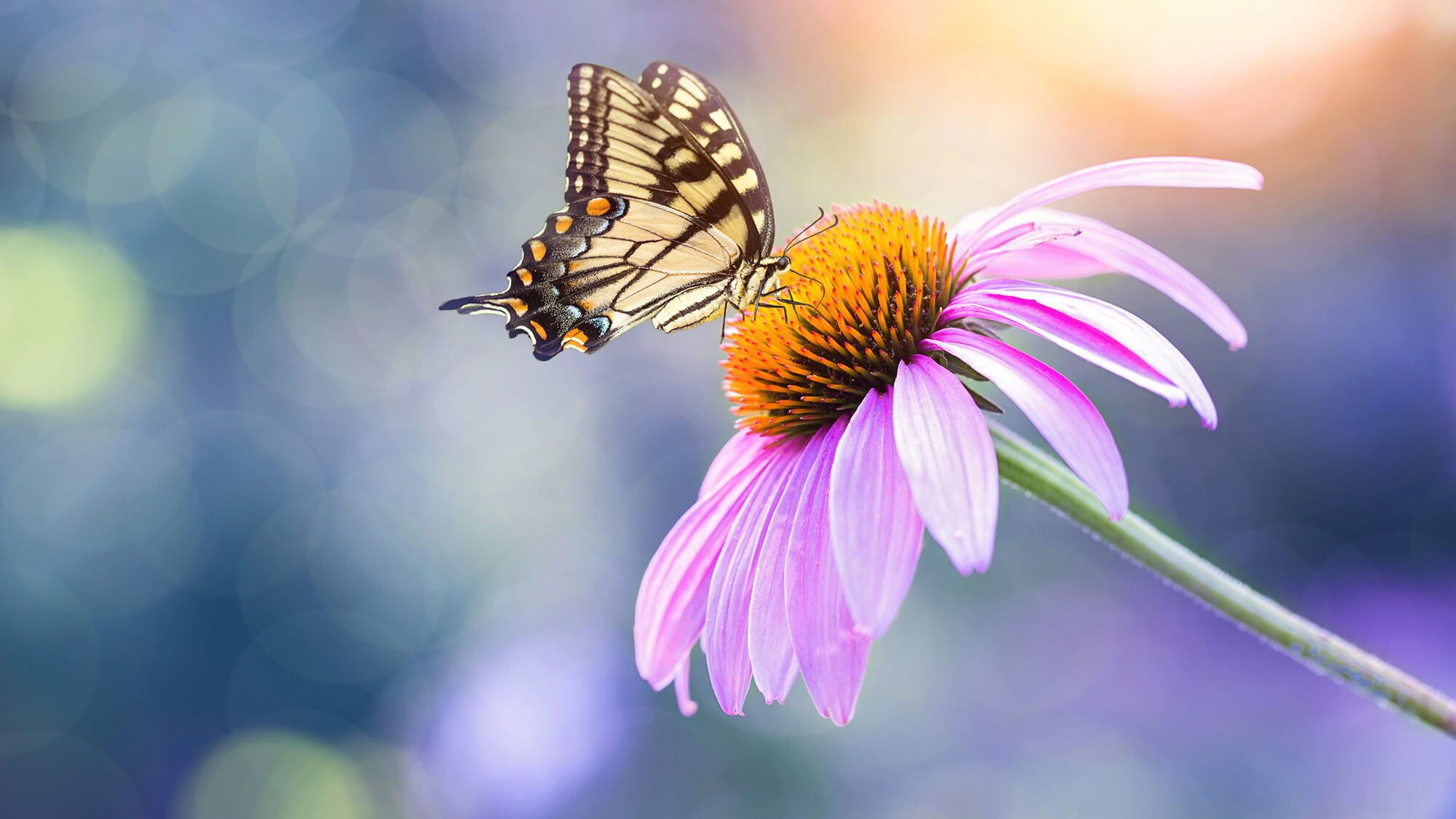May 31, 2021

Eco-friendly gardening supports pollinators and the environment
Your garden can make an impact!
It’s not just about pretty flowers anymore — although we still love beautiful plants. Gardening is one of the best ways you can support the environment.
What is sustainable gardening?
A sustainable garden is able to “sustain” itself without the need for a lot of maintenance or natural resources. Although not a novel concept, it has become more popular with the societal shift toward eco-friendly consumerism.It can be difficult knowing where to start, so to put your best, greenest foot forward, here are some tips you can try this year.
Make your garden pollinator-friendly
Pollinators — bees, butterflies and other insects — are vital for the reproduction of plants and food production. Due to urbanization, many of these species have lost their natural habitats and are at risk of becoming endangered.This is where you can help!
By creating pollinator-friendly spaces with flowering plants and easy accessibility, your garden will not only reap the benefits of these bugs, but you will also be supporting the restoration of pollinator populations.
Some ways to make your garden pollinator-friendly include:
Plant native
Native plants have co-evolved with pollinator species, and are well-adapted to our climate, soil, and growing season. It is okay to plant non-native plants as long as they are not invasive, and are planted according to the label.Plant single-bloom varieties
Pollinators can navigate single-bloom flowers much more easily because their nectaries are exposed, allowing easy collection of nectar and pollen. Petals of double-bloom varieties often block the flower's nectar, making it difficult to navigate.Plant host plants
Butterflies require specific host plants to lay their eggs, so that their offspring (caterpillars) can feed on them once they emerge. For example, monarch butterflies require milkweed to feed on in the early stages, so that's where adult monarchs lay eggs. Once the caterpillars become butterflies, they feed on all nectar and pollen sources. Planting a large patch of echinacea can help pollinators to spot resources more easily.
Planting a large patch of echinacea can help pollinators to spot resources more easily.
Mass planting
Try to group plant species together instead of having just single plants throughout your garden. For example, planting a large patch of echinacea. Mass planting helps pollinators spot resources more easily, pollinate more efficiently, and spend less energy collecting pollen and nectar. Bees tend to collect pollen from one type of plant at a time.Use mulch
Mulch is a key ingredient to a low-maintenance, sustainable garden. Placed two to three inches of mulch over topsoil can provide benefits like: protecting soil against extreme temperatures, suppressing weeds, keeping moisture in, slowing soil erosion and “mulch” more.Treat for pests naturally
It’s best practice to keep nature natural. This means avoiding chemically-charged herbicides and fertilizers that may damage the intricate ecosystems in your backyard.Instead, you can rely on natural products or engage in manual labour to pull out any unwanted weeds. A quick Google search will also direct you to benign insects to munch on any unwanted pests.
Afterall, who wouldn’t want to house an “aphid lion,” also known as a Green Lacewing, in their backyard?.
Reduce, reuse and recycle
The three R’s have been instilled into us since early education and for good reason!When your plants, specifically flowers and vegetables, reach maturation they will produce seeds. Collecting these seeds before the plants dry out will not only save you money but also provide materials to plant again the following season.
Even after collecting seeds, your dead plants can still be of use!
Using food waste and plant waste, you can compost dead material to create an organic fertilizer for your garden while keeping it out of the landfill.
And rather than buying storage for it, take a look around your garage for old wheel barrels, containers or wood that can be transformed into boxes. These things can also be implemented into your garden as pots, raised beds and rain-water collectors that will all push you toward living a zero-waste lifestyle.